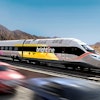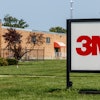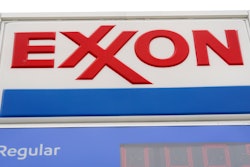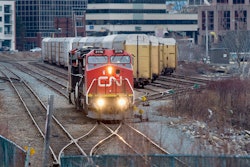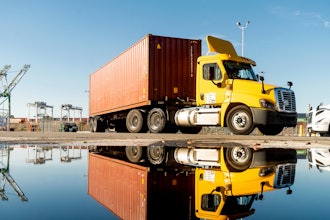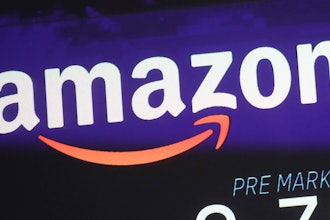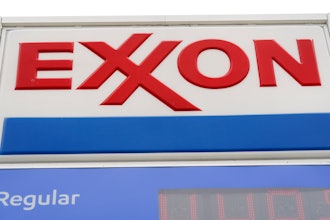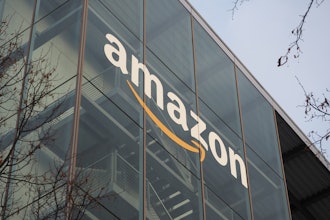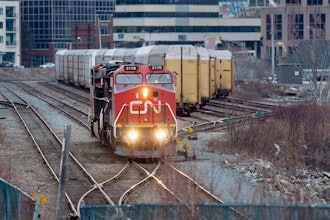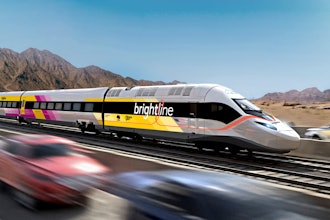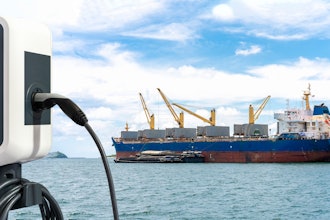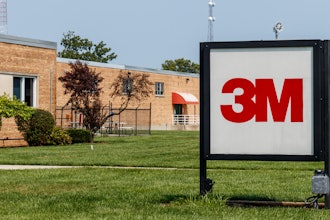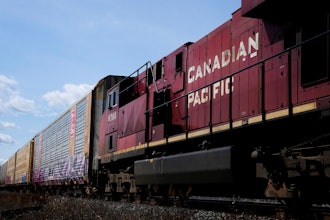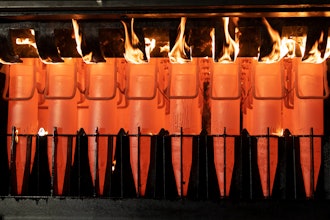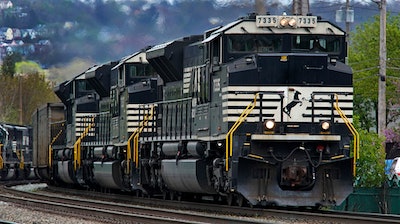
OMAHA, Neb. (AP) — Norfolk Southern expects February's fiery Ohio derailment to cost it $387 million, but that total will likely increase over time and that doesn't reflect how much the railroad's insurance companies will eventually cover.
The railroad provided a detailed estimate of the cost of Feb. 3 derailment outside East Palestine, Ohio, Wednesday along with first-quarter earnings. That derailment, and others since then, sparked a nationwide focus on railroad safety. Regulators and members of Congress have proposed reforms like capping freight trains lengths and setting standards for the trackside detectors used to spot problems.
CEO Alan Shaw told Congress that he backs some proposals like enhanced standards for tank cars, but insists the data doesn't support other ideas like minimum two-person crews. Shaw reiterated his often-stated promise Wednesday to "do whatever it takes to make it right for East Palestine and the surrounding areas."
The $387 million estimate includes the $30.9 million the railroad has pledged to help residents and the community around East Palestine recover from the derailment. Norfolk Southern said it has already spent about $55 million to dig up and remove nearly 39,000 tons of contaminated soil and trucked away another 14.8 million gallons of tainted water. Yet those who live near the derailment site close to the Ohio-Pennsylvania border are fearful of possible long term health impacts even though officials say that repeated testing hasn't shown harmful levels of chemicals in the air or drinking water.
That estimate doesn't include money Norfolk Southern, based in Atlanta, will put into funds to help cover any long-term health issues, protect drinking water and compensate residents for the loss in their property values because the details are still being worked out with Ohio's attorney general. The railroad will also have to reimburse the Environmental Protection Agency for its oversight of the cleanup.
The railroad does have insurance coverage that will kick in after the first $75 million spent on damage to people's property and after the first $75 million of damage on its own. But the details of how much insurance will actually cover will be worked out over time.
Norfolk Southern and other major freight railroads have announced new safety measures, including more than 1,000 more trackside detectors. But they're not likely to totally abandon the lean operating model adopted over the past six years that labor unions say has made the industry riskier because so many jobs have been cut.
The railroads defend their record as the safest way to transport hazardous chemicals over land and say recent changes haven't compromised safety.
Federal Railroad Administration data shows that Norfolk Southern reported 12.95 train accidents per every million miles last year. That's better than the three previous years but still worse than a decade earlier when it reported 11.4 total accidents per million miles. Shaw pledged to continue working to improve that record as the railroad applies the lessons from East Palestine.
"Moving forward, Norfolk southern will be known for safe operations," Shaw said.
Yet the National Transportation Safety Board and Federal Railroad Administration are investigating the railroad's practices to see where they can be improved.
Norfolk Southern's first quarter profit fell 34% to $466 million, or $2.04 per share, because of the derailment costs. That's down from $703 million, or $2.93 per share, a year ago.
Without the derailment costs, the railroad estimated that it would have made $1.1 billion, or $3.32 per share, exceeding the $3.15 Wall Street expected, according to a survey by Zacks Investment Research.
Citi analyst Christian Wetherbee said the railroad's core results were weaker than he expected and shares fell about 1% to $204.43 Wednesday.
Expenses jumped 32% to $2.4 billion, along with labor expenses tied to significant hiring over the past year and a new contract for employees.
Revenue grew 7% to $3.13 billion, in line with expectations, as it increased rates for most of the cargo it delivered. Volume was flat overall.
The derailment cleanup has slowed traffic on a busy east-west corridor for the railroad because it has only had one of its two tracks in service since March while it is digging up contaminated soil. That work is expected to wrap up in early June, which will boost traffic in the area.

